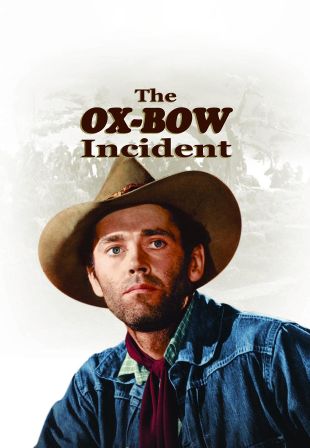William Wellman's The Ox-Bow Incident was an anomaly at the time it was released. Produced in the middle of World War II, when Hollywood was concentrating on movies that either boosted morale or entertained, it did neither: it was a major studio release, with a hot young star (Henry Fonda) in the lead, about an unjustified lynching in the 1870s West. Walter Van Tilburg Clark's novel had been kicking around for years, but Hollywood had never had much luck making movies about mob violence and vigilante justice (Fritz Lang's Fury had been a box-office disaster for MGM before the war, despite the presence of Spencer Tracy), and no one was anxious to film it. Twentieth Century-Fox production chief Darryl F. Zanuck agreed to do the movie only because Fonda and Wellman agreed to do other films for the studio, and the result was a movie that was singularly unpopular during its initial release but which has aged magnificently. It was a labor of love by all concerned, a chilling indictment of American justice and America's past in which there are no heroes, just participants who are less guilty than others. Once the war was over, and the movie made it to television, it began to find an audience; the belated response from critics and viewers, as well his pride in having made it, inspired Fonda's similar effort 14 years later to make 12 Angry Men, a movie built on a similar theme. Ironically, 12 Angry Men also took decades to find its audience and begin recording a profit. For all its lack of recognition at the time, The Ox-Bow Incident has become, along with Otto Preminger's Laura, perhaps the most distinctive and well-remembered film issued by Fox during the first half of the 1940s. Still startling today is the performance of Jane Darwell as Ma Grier. A 1940 Oscar winner for her Ma Joad in The Grapes of Wrath, Darwell here plays the dark mirror image of that part, a bloodthirsty, mean-tempered, jocular sadist; Darwell was an anomaly herself, a lesbian living an almost open lifestyle: there were Hollywood columns of the era describing visits to her ranch in Northern California and the coterie of "nieces" (quotes in the articles) living with her.

The Ox-Bow Incident (1943)
Directed by William A. Wellman
Genres - Drama, Western |
Sub-Genres - Message Movie, Psychological Western |
Release Date - May 21, 1943 (USA - Unknown), May 21, 1943 (USA) |
Run Time - 75 min. |
Countries - United States |
MPAA Rating - NR
Share on